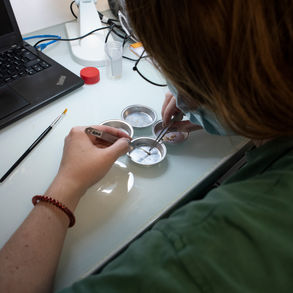
Ÿnsect
Entomophagy: what is it, and could it define how we eat moving forward?
Entomophagy is perhaps more commonly understood as the practice of eating insects. As we face more pressure to make lifestyle changes so to reduce our environmental impacts, entomophagy is something the general public are still coming to terms with and far from mainstream. One company paving the way is Ÿnsect, based in France. They have a game-changing approach which really shines a light on the scalability of insects for consumption, and the widespread benefits.
I remember hearing for the first time that the “future of food” is likely to lie with insects: described as superfoods on this particular food documentary. Back then, I couldn’t help but squirm a little at the thought, left with the important question of “why?!” and then when I first heard of bags of insects appearing on the shelves of major supermarkets, “what’s the buzz about?”.
Now, though, this is becoming evermore clear. In efforts to reduce our ecological footprints, whether this is on an individual, institutional, or wider level, we are told to consume less meat and to rethink what foods we are eating for the sake of the environment. So, is entomophagy the answer to that question by providing a viable alternative to meat consumption?
Here are some of the benefits and ways in which companies such as Ÿnsect are transforming food systems and the workings of conventional agriculture:
Reduction in greenhouse gases: livestock farming is notorious for its wide-ranging environmental consequences, including the production of large volumes of greenhouse gas emissions. For instance, Ÿnsect estimate that in creating their food products, they “emit 40x fewer CO2 emissions than beef, and use 40x less water than pork”.
Land use change: conventional agriculture, whether livestock or arable, demands many resources, including vast expanses of land. Ÿnsect take pride in making their farms vertical, farming upwards and across storeys to maximise space and reduce land use. Ÿnsect claim to use “30x less land than beef”.
Tackles food waste: insects can be fed on a variety of food waste, therefore reducing the amount exiting the food system.
Nutritious and high in protein: their food products contain vital vitamins and minerals but are also so high in protein that they calculate that “one kilo of mealworm protein contains more protein than one kilo of beef”.
Using waste as a resource: Insect excrement can be used as fertiliser, closing the loop on waste-resource cycle by keeping in within the system)
With a growing base of research behind it and increasing visibility in supermarkets, is the work of companies like Ÿnsect marking the beginning of a food revolution? We’ll have to find out.
Written by Heidi Surfleet
References list:
Healthy Insect Nutrition for people and planet (no date) Ynsect. Available at: https://www.ynsect.com/food/
Godwin, R., 2021. If we want to save the planet, the future of food is insects. The Observer Food.
We Need to Talk About Meat (2021) United Nations Framework Convention on Climate Change. Available at: https://unfccc.int/blog/we-need-to-talk-about-meat
Ÿnsect (2023) Available at: https://www.ynsect.com/
Images from Ÿnsect website and press pack

Uses “30x less land than beef”
“Emit[s] 40x fewer CO2 emissions than beef"
Benefits
Project Gallery






Location
Paris. France

